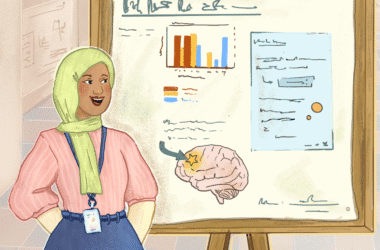As the warming weather begins to melt the snow, McGill students can look forward to the summer, but, first, final exams stand as an arduous hurdle in the way of the well-deserved break. While students fill up the campus libraries to study, McGill’s Exam Office in the Enrolment Services is working just as hard to ensure that 64,000 exams are prepared in time for their scheduled date. The McGill Tribune looked into the process of scheduling final exams and what it takes to prepare for a chaotic exam period.
How are final exams organized at McGill?
Approximately two to three weeks before the beginning of each semester, the Exam Office contacts every professor registered to teach a course to determine if their course will include a final exam. Soon after the add/drop deadline, the Exam Office publishes a tentative exam schedule, followed by a final schedule about five weeks after the start of the semester. In the meantime, work is done to assign exam rooms, arrange furniture and supplies, hire invigilators, and schedule exam printing. Course instructors are responsible for organizing non-paper exams, such as lab exams, with their respective departments.
How are final exams scheduled?
According to Stanley Whyte, Chief Invigilator, a software called Infosilem looks at the exam load for each student and schedules final exams with the least conflicts possible.
“Our scheduling software uses an algorithm that takes into account the enrolment for each course and then attempts to create the best possible schedule for the majority of students by spreading out those courses that have students in common,” Whyte said.
Infosilem is also used to by Enrolment Services to generate McGill’s course schedule.
What happens if I have a conflict?
McGill acknowledges both academic and religious conflicts under conditions outlined on the exam website. Students are responsible for filling out the Exam Conflict Form to be approved by the Exam Office before the exam date. Students who do not have a conflict but require special accommodations, such as McGill athletes who need to play an away game, will need to submit a request for approval to their faculty’s student affairs office.
What if I have a disability?
Students who are registered with the Office for Students with Disabilities (OSD) are accommodated for any disability-related barriers that may hinder their performance on an exam. These students are eligible to fill out an exam sign-up form and get approval for accommodations, such as writing their exam in a different room.
How are invigilators hired?
Most invigilators are graduate students and external candidates, with undergraduate students being ineligible. Hired invigilators must attend a mandatory training session that explains their duties and expectations, as well as how to address any complications that arise during exams. Invigilators are unionized through the Association of Graduate Students Employed at McGill (AGSEM) and hired under the conditions of the Collective Agreement certified in April 2010.
Can I feign illness during an exam to get out of it?
According to Stanley Whyte, Chief Invigilator, there is no guarantee that a student who falls ill while writing an exam will be permitted to write the deferred one in August.
“Each case of a student falling ill during their exam is different and the circumstances of the situation are reviewed before a decision is made,” Whyte said.









